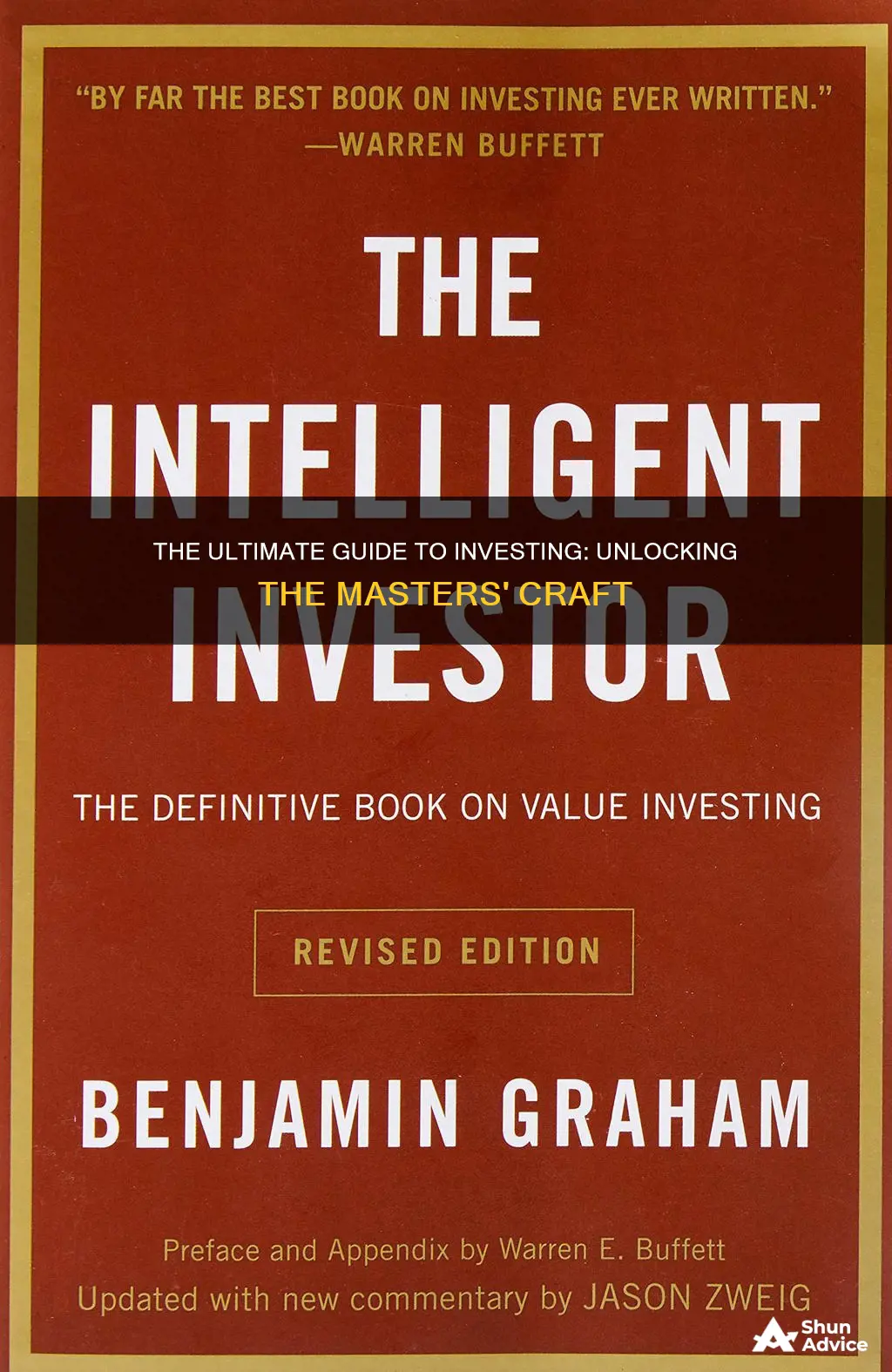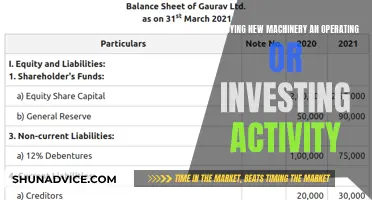
'How to Invest: Masters on the Craft' is a book by David M. Rubenstein, co-founder of one of the world's largest investment firms, The Carlyle Group. The book is a collection of interviews with some of the world's most successful investors, including Stan Druckenmiller, Sam Zell, Mike Novogratz, Larry Fink, Mary Callahan Erdoes, and Seth Klarman. Rubenstein has spent over three decades in the competitive world of private equity and uses the book to reveal what he has learned about investing across various asset classes, including venture capital, real estate, private equity, and crypto. The book is aimed at both beginners and seasoned professionals, promising to transform the way readers approach investing.
What You'll Learn

Venture capital
Rubenstein interviews Michael Moritz, a partner at Sequoia Capital, one of the original backers of Apple, Cisco, YouTube, and WhatsApp. Moritz has also served on the board of directors of Google, LinkedIn, PayPal, and Yahoo!
Rubenstein also interviews John Rogers Jr., whose commitment to careful stock analysis led him to build one of the largest African American-owned and led investment companies.
According to Rubenstein, great investors in this category have a number of traits in common. They tend to have a high degree of intelligence and an ease with numbers and math. They are often willing to go against conventional wisdom and take risks. They pay attention to detail and are able to admit their mistakes. They are also typically hard workers with an "obsession" for what they do.
Litigation Risks: Understanding the Potential Loss of Investments in Court Battles
You may want to see also

Real estate
Sam Zell: The Smartest, Toughest Investor in Real Estate
The book highlights Sam Zell as one of the most influential figures in the world of real estate investing. He is described as the "smartest, toughest investor the world of real estate has ever seen." Through his chairmanship of Equity Group Investments and his involvement with multiple NYSE companies, Zell has established himself as a formidable force in the industry.
Key Insights from Sam Zell
- Focus on Risk and Downside: Zell emphasizes that successful investing involves focusing on risk management and downside protection. He advises investors to adopt a cautious approach, asking themselves, "What could go wrong?" rather than being overly optimistic.
- Intelligence vs. Motivation: Zell suggests that raw intelligence is not the sole predictor of success in investing. Instead, he values motivation and energy above having the highest IQ. He looks for individuals with a high degree of motivation and drive when hiring employees.
- Containment and Success: According to Zell, good investors focus on risk containment, and those who prioritize this aspect ultimately have a higher chance of succeeding.
Other Real Estate Mentions
The book also mentions real estate in the context of private equity and buyouts, highlighting the importance of this asset class in investment portfolios. Additionally, David Rubenstein, the author, has experience in the hypercompetitive world of private equity, which often involves real estate investments.
"How to Invest: Masters on the Craft" offers a comprehensive overview of various investment sectors, including real estate. Through conversations with industry leaders like Sam Zell, readers can gain valuable insights into the strategies and mindsets that have led to success in the competitive world of real estate investing.
Retirement and Mortgages: Exploring the Similarities
You may want to see also

Private equity
- Private equity is a complex and competitive field within the investment world, requiring a deep understanding of various strategies and a strong network of connections.
- One of the critical aspects of private equity is the ability to identify and capitalise on opportunities. Successful investors like Rubenstein are always on the lookout for potential investments that can deliver significant returns.
- Building a strong network is essential in private equity. Rubenstein's success is partly attributed to his ability to connect with influential people and gain access to exclusive deals.
- Private equity often involves taking calculated risks. Investors must be able to assess potential investments, manage risk, and make bold decisions when necessary.
- Long-term thinking is vital in private equity. Many of the investors Rubenstein interviewed emphasised the importance of taking a long-term view when making investment decisions.
- Private equity requires a diverse set of skills, including financial analysis, negotiation, and the ability to identify promising investment opportunities.
- Due diligence is critical in private equity. Successful investors conduct thorough research and analysis before making any investment decisions.
- Exiting an investment at the right time is an art in private equity. Knowing when to sell or divest is just as important as knowing when to buy.
- Private equity often involves complex deal structures and negotiations. Investors must have a strong understanding of legal and financial intricacies to navigate these deals successfully.
- Building a strong team is crucial in private equity. Surrounding yourself with talented and experienced professionals can greatly enhance your chances of success.
- Private equity is a dynamic field, and investors must stay abreast of market trends, new technologies, and emerging industries to make informed decisions.
David M. Rubenstein's "How to Invest: Masters on the Craft" offers valuable insights into the world of private equity and investing in general. By learning from his experiences and the wisdom of other prominent investors, readers can gain a deeper understanding of what it takes to succeed in this competitive field.
Investing: Separating Fact from Fiction
You may want to see also

Hedge funds
In his book, "How to Invest: Masters on the Craft", David M. Rubenstein, co-founder of one of the world's largest investment firms, explores various investment strategies, including hedge funds. Hedge funds are a type of alternative investment that pool money from investors and employ complex trading and risk management techniques to achieve above-average returns. Here is an overview of hedge funds and their role in the investment landscape:
Strategies and Techniques
Investor Profile
Fees and Performance
Regulation and Risk
Luna: Invest or Avoid?
You may want to see also

Crypto
David M. Rubenstein's book, *How to Invest: Masters on the Craft*, covers a wide range of investment topics, including cryptocurrency. In the book, Rubenstein interviews Mike Novogratz, who made $250 million from crypto in one year. Novogratz is the founder of Galaxy Digital, a leading crypto company. Rubenstein also interviews Marc Andreessen, co-founder of Silicon Valley venture capital firm Andreessen Horowitz. Andreessen notes that in venture capital, mistakes of omission are more critical than mistakes of commission—it is more important to avoid missing out on winning investments than it is to avoid losing investments.
Rubenstein himself notes that there is now so much interest in cryptocurrency around the world that it will be difficult for Western governments to eliminate or restrain these currencies. He also observes that many individuals and investors feel that government-issued currencies are being devalued and are not as readily transferable worldwide as cryptocurrencies. Additionally, the effort of Western governments to seize Russian oligarch assets during the Russia-Ukraine war will likely accelerate the appetite of wealthy individuals for non-traceable assets. However, Rubenstein acknowledges that the decline in crypto values in mid-2022 may cause investors to pause and reflect.
Rubenstein's book provides a comprehensive overview of investing in cryptocurrency and other cutting-edge investments. It offers valuable insights and strategies for aspiring investors, covering topics such as basic investment principles and advanced trading strategies.
Analyzing Investment Opportunities: Strategies for Success
You may want to see also
Frequently asked questions
The book offers a master class on investing featuring conversations with some of the biggest names in finance, conducted by David M. Rubenstein, the co-founder of one of the world's largest investment firms, The Carlyle Group.
The book is suitable for both beginners and seasoned professionals in the world of investing.
The book provides insights into the thinking and practices of highly successful investors, covering various asset classes such as venture capital, real estate, private equity, and crypto. It emphasizes the importance of risk management, independent thinking, adaptability, and a long-term focus.







